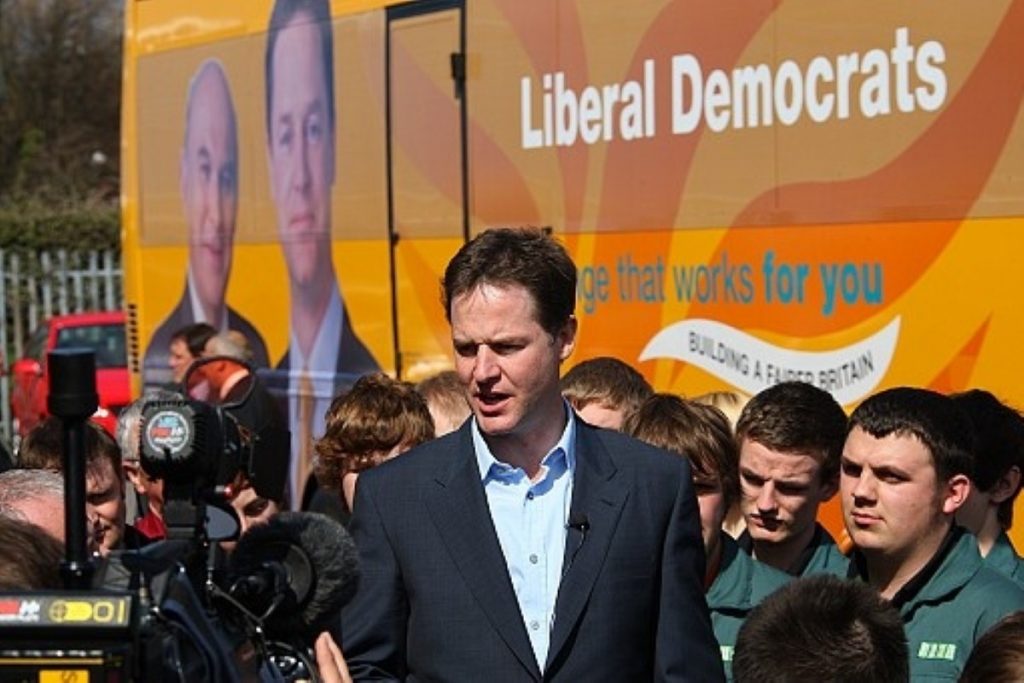2010 suggests big AV boost for Lib Dems
Last year’s coalition negotiations would have been fundamentally changed had the election taken place under the alternative vote system, according to new research.
A study published in the January issue of Parliamentary Affairs journal found that the Liberal Democrats’ improved position would have made a Lib-Lab pact much more feasible.
Had the general election been held under the AV system the Conservatives would still have emerged the largest party with 284 seats, down 22 MPs from the real result in 2010.


Labour would have won 248, down ten, while the Liberal Democrats would be up 32 to 89 seats.
“This AV outcome would have dramatically changed the arithmetic of coalition building immediately after the election, giving the Liberal Democrats a possibility of partnering either with Labour or the Conservatives to form a majority two-party coalition government,” the study’s authors wrote.
Last year the electoral arithmetic meant Labour and the Liberal Democrats would still have been one seat short of an overall majority, even with support from Plaid Cymru and the Green party.
But under AV Nick Clegg’s party would have had a realistic alternative which could have changed the outcome of the government.
The researchers, from the University of Essex and University of Texas at Dallas, simulated AV results by using British election data collected immediately after the May 6th poll.
Respondents were asked how they voted in the election and, in a simulated ballot, how they would have voted in a comparable AV election.
They raised two complicating factors which could undermine their findings. Their voting decisions were taken in circumstances where political parties had not attempted to win over second votes from other parties.
“A further complicating factor is that the experience of a Conservative-Liberal Democrat coalition government may produce important changes in the second (and third) preference distribution ratios,” the study added.
If the coalition manages to survive for its five-year term supporters of the Conservatives or Lib Dems would be more likely to back the other party as their second preferences, the authors suggested.
They concluded: “This is certainly something that will require close monitoring if the anticipated electoral system reform referendum results in the introduction of an AV scheme for elections to the House of Commons.”












